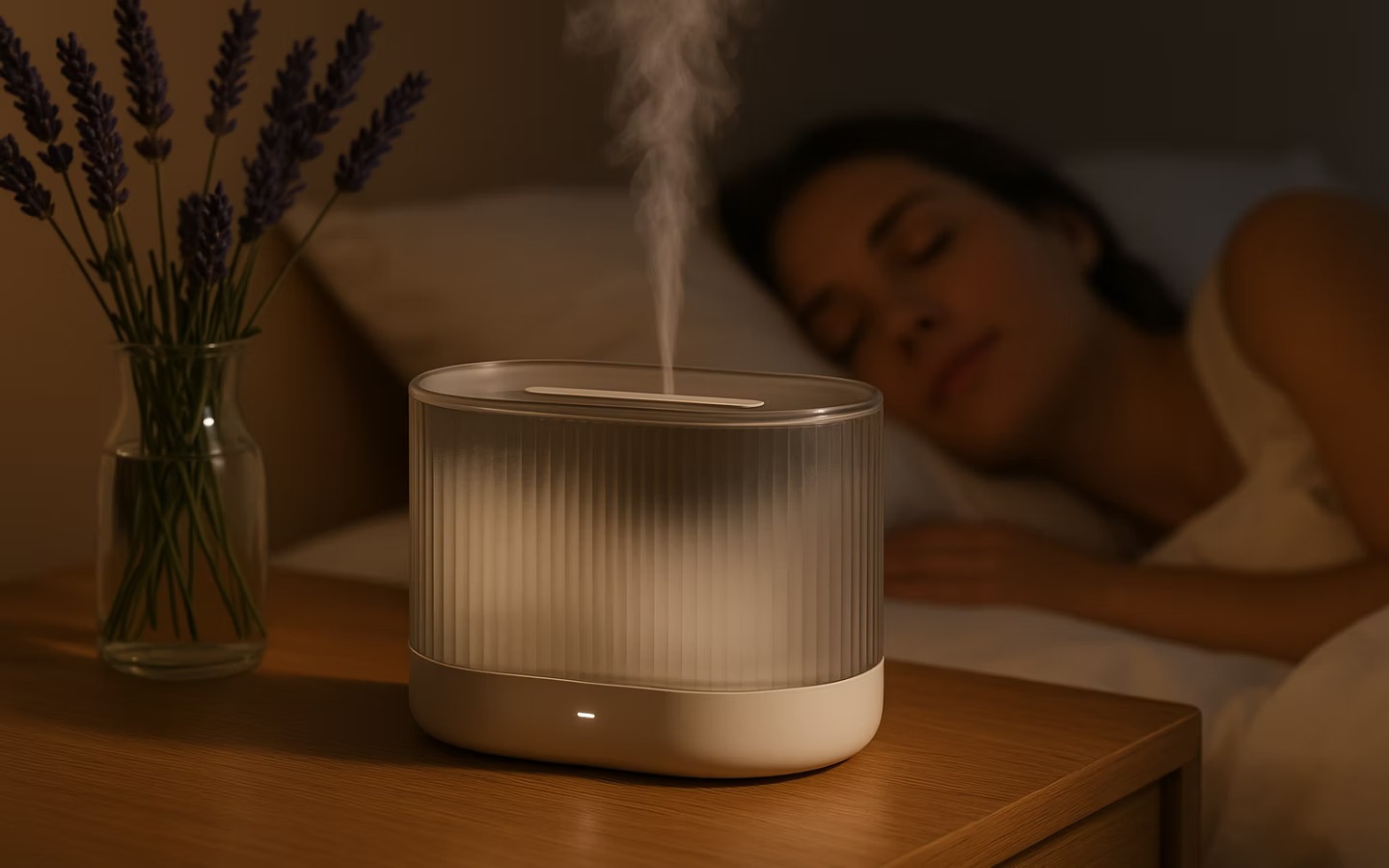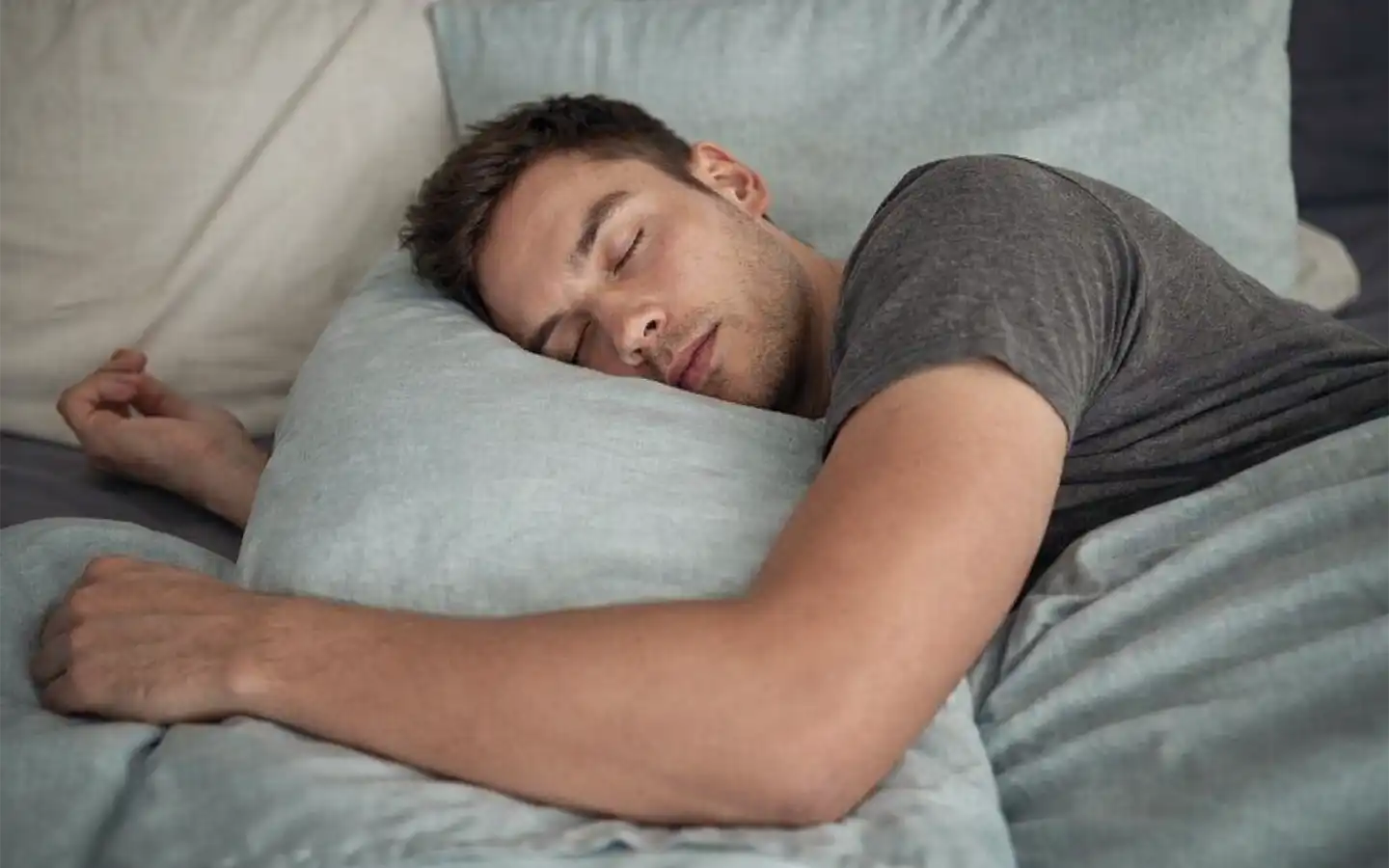October 21, 2025
Magnesium vs. Melatonin for Sleep: How They Compare and Is There Something Better
There are nights when sleep just doesn’t come easily. Even people who usually sleep well can struggle falling asleep and getting the rest they need. And it’s not rare, either. According to the National Sleep Foundation, nearly 4 in 10 adults have trouble falling asleep for several nights a week.
If you’ve been lying awake and searching for solutions to improve your sleep quality, then you’ve likely come across magnesium vs melatonin for sleep. These two are some of the most common sleep supplements. Both are widely available and considered safe to use, yet they do different things and are better suited to different kinds of sleep issues.
So, is magnesium or melatonin better for sleep? It’s not a simple answer. This article explains how both supplements affect sleep, when one is better than the other, and why some people might need more than supplements.
How Melatonin Affects Sleep
Melatonin is called a sleep hormone, and it's essential for one’s ability to sleep. It plays a central role in the circadian rhythm, which is the internal clock that regulates sleep and wake cycles.
It’s naturally produced by the pineal gland in response to darkness and helps signal to your body that it's time to wind down in the evening and prepare for sleep. Exposure to light, whether daylight or artificial light, can interfere with melatonin production and cause sleep problems.
Clinical studies have shown that low doses of melatonin can help people fall asleep a bit faster and move their sleep timing earlier.
However, melatonin is not to be confused with a sedative. It doesn’t force sleep and its effectiveness depends on when you take it. It is most effective when sleep problems are related to sleep schedule disruptions like jet lag, delayed sleep phase disorder, or inconsistent bedtimes.
Taking more melatonin via supplements isn’t necessarily better, either.
Many over-the-counter products contain high doses, but research suggests that lower amounts (typically around 0.5 to 3 milligrams) are more effective and better tolerated. Some people use it nightly, but overuse or high doses can make the brain less responsive to its natural melatonin and cause grogginess upon waking up.
How Magnesium Affects Sleep
Magnesium is an essential mineral your body relies on for hundreds of processes, including muscle function, nerve regulation, and the body’s stress response. Many people don’t get enough of it through food, especially if they’re under chronic stress or follow diets low in whole grains, greens, and seeds.
When magnesium levels in the blood are adequate, muscles can fully relax after contracting, the heart maintains a steady rhythm, and the nervous system stays balanced instead of overstimulated. Magnesium is also connected to GABA, which is the neurotransmitter that lowers brain activity and tells the nervous system it’s safe to relax, making it easier for sleep to happen naturally.
People who tend to feel physically tense, restless, or “wired but tired” at night might notice the most difference once their magnesium levels return to normal.

How to Get More Magnesium from Food
We normally get magnesium through food, though many people don’t absorb enough of it from their diets. Older adults (50 or older) are generally more susceptible to magnesium deficiency, in part because the body’s ability to absorb it from food declines as we age.
Magnesium-rich foods include leafy greens like spinach and kale, nuts and seeds such as almonds, cashews, and pumpkin seeds, and staples like potatoes and rice. Whole grains and legumes also contribute smaller amounts.
Best Magnesium for Sleep (Glycinate vs Citrate)
There are several forms of magnesium available in supplement form, but not all are equally well absorbed or tolerated. Two of the most recommended options for sleep are magnesium glycinate and magnesium citrate. Both forms are typically taken about 30 to 60 minutes before bed.
Different forms of magnesium are absorbed differently. For sleep, magnesium glycinate is preferred because it’s gentle on digestion and supports relaxation. Magnesium citrate absorbs well, too, but in higher doses, it can have a mild laxative effect, which some people find uncomfortable at night.
[CTA_INSERT]
Which One Is Better for Sleep? (Or... Is There a Better Way?)
So, is magnesium or melatonin better for sleep? The answer depends on the type of sleep issue you’re dealing with.
Magnesium tends to be more helpful when sleep is disrupted by physical tension, anxiety, or stress that keeps the nervous system in a constant state of alert. Melatonin can be useful when the problem is more about timing – like jet lag, shift work, or trouble falling asleep at the right hour.
Consider taking melatonin if:
- You struggle to fall asleep at the right time
- You travel across time zones or work late-night shifts
- Your sleep is irregular due to changing schedules
- You’ve been told you have a delayed sleep phase or circadian rhythm disruption
Consider taking magnesium if:
- You feel physically tense or restless at night
- Your mind feels active or overstimulated when trying to fall asleep
- You wake up feeling tight, sore, or like you didn’t rest deeply
- You have sleep trouble linked to stress or anxiety
The reality of supplements is that a great deal of people use them every day without noticing any, or even slight differences in how they sleep. After all, sleep issues aren’t just about muscle tightness or circadian rhythms. They’re also driven by how a person is dealing with stress and their emotional patterns at night.
If this is the case for you, you can look for a different kind of solution. One that doesn’t depend on adding s substances to the body, but instead works through the nervous system itself.

What to Do When Sleep Supplements Aren’t Helping
Magnesium and melatonin can help you fall asleep, but they generally don’t do much more than that. Real rest depends on how calm and safe your body feels during the night.
Kimba was designed to support that directly. It uses scent to reach the limbic region of the brain, where emotion and stress are processed. When your wearable shows signs of restlessness or tension, Kimba releases a pulse of scent that helps your body relax and drift back into deeper sleep.
Each night, Kimba learns your sleep patterns and adapts its timing for better results. Over time, your brain begins to associate these scent cues with calm, making it easier to fall asleep, stay asleep, and wake up clear-headed. Kimba is non-habit forming, hormone-free, and designed to support your body’s natural rhythm.
With Kimba, you can build the conditions for consistent, restorative sleep – without pills or side effects.
Join our waitlist and find out what Kimba can do for your nights!


Continue reading

Parasomnias and Why Sleep Becomes Unstable at Night

What is REM Sleep And How to Increase It Naturally


